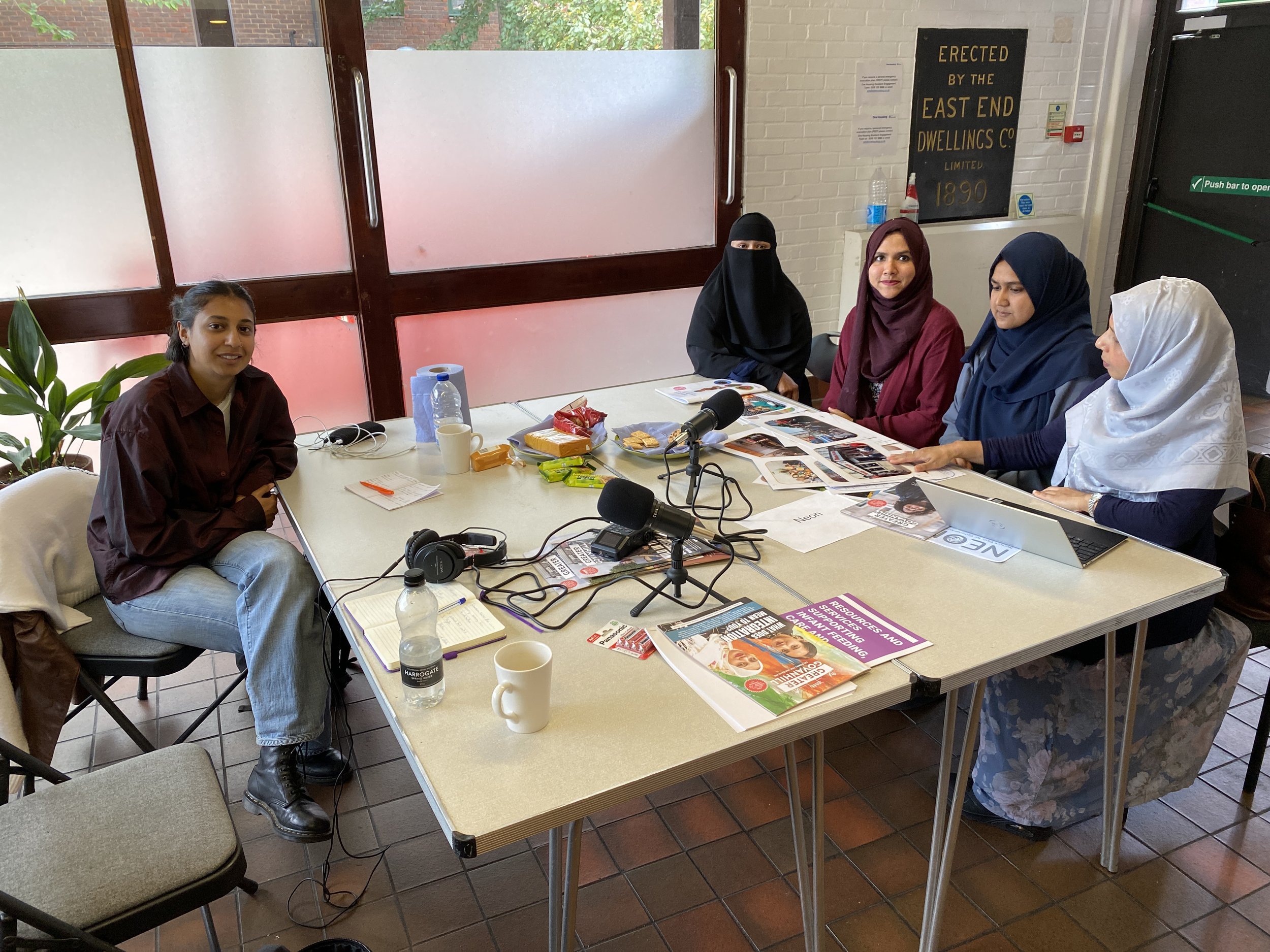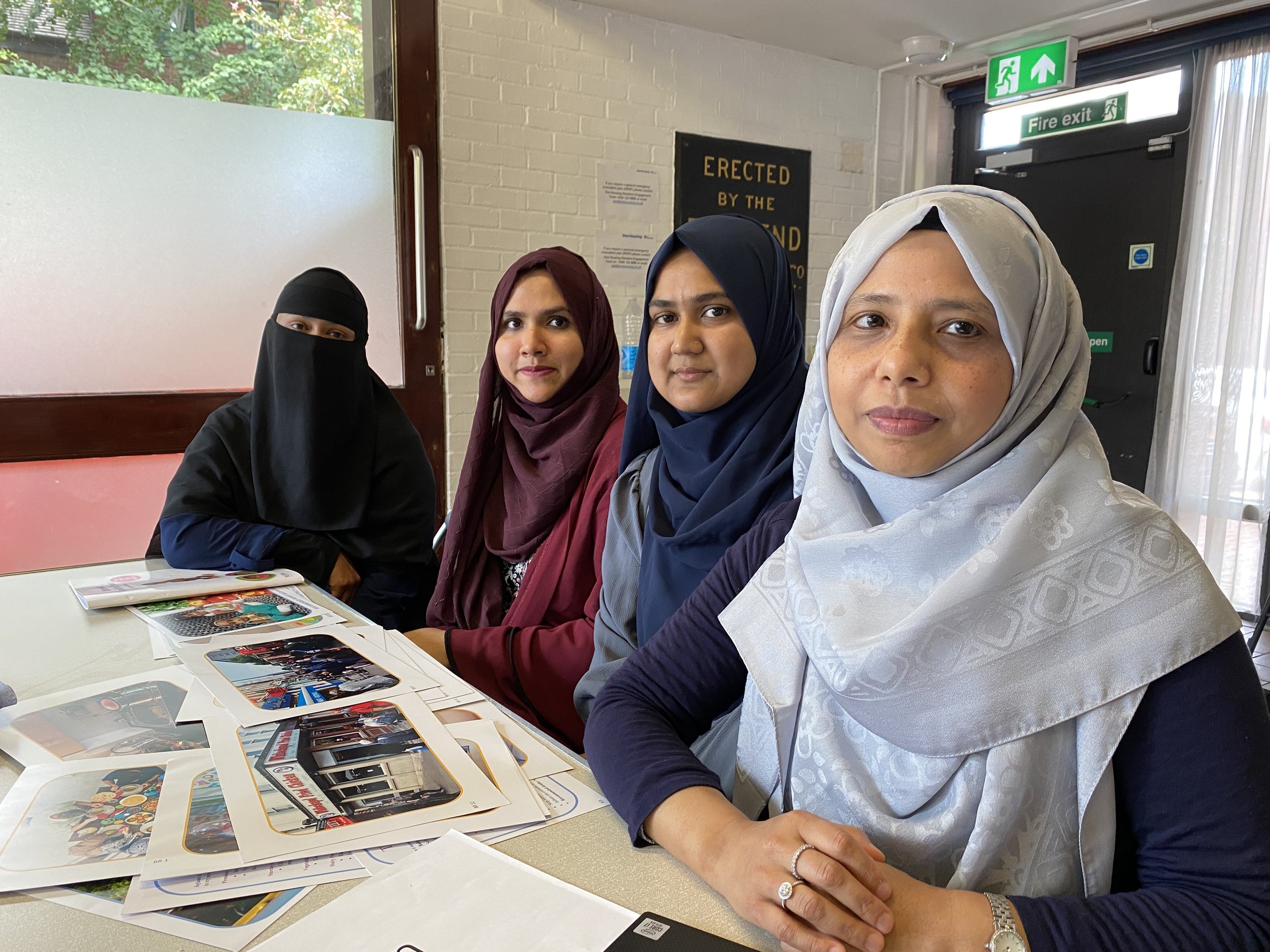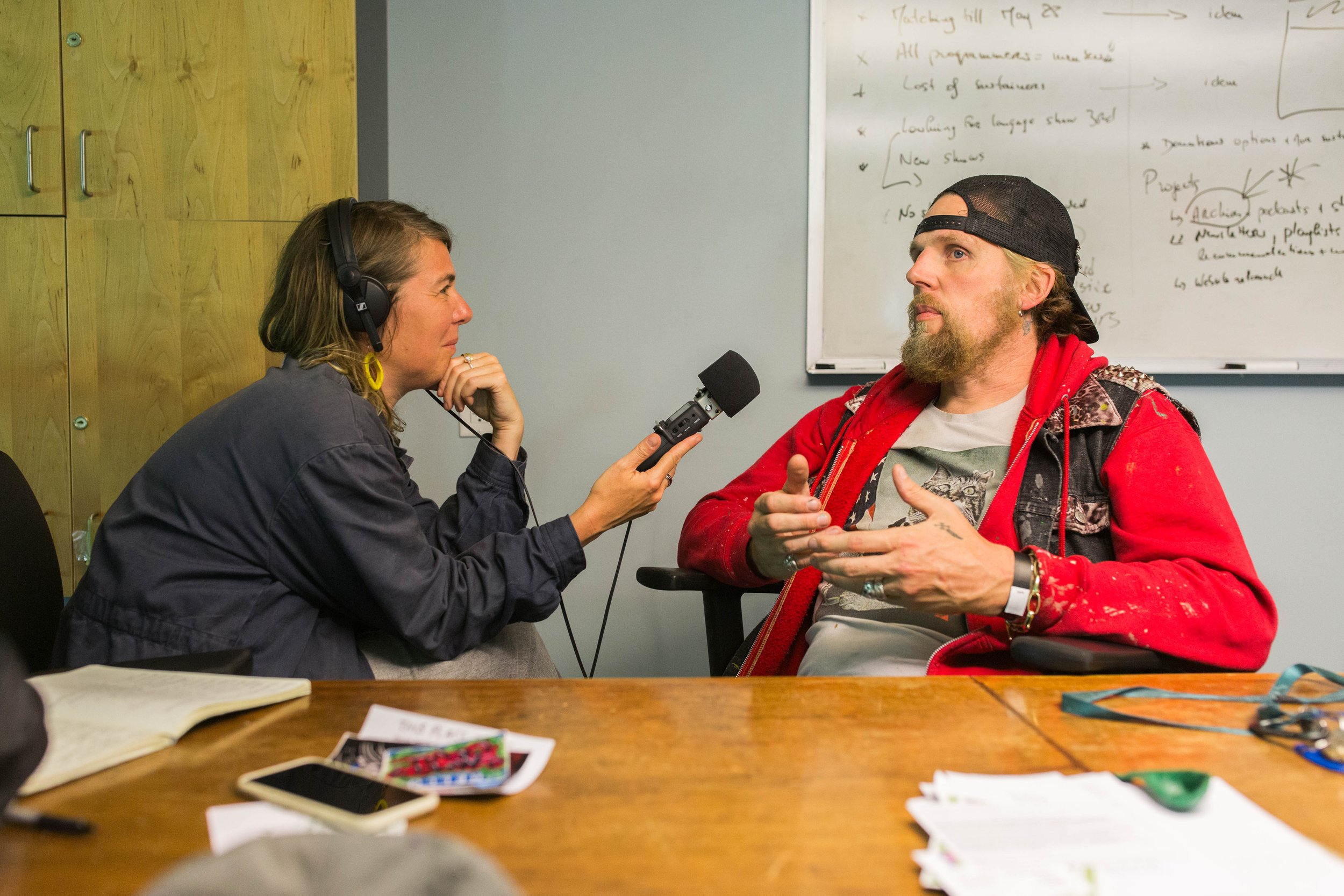Mind the Health Gap Podcast - Out Now!
Tune into our new three-part podcast, co-created by The Ferret, where we delve into three health inequalities identified as of greatest concern in Scotland - and look into potential solutions around the country and further afield.
Samar and some of the women from the NEON project in London
By Rhiannon J Davies | Photos by Rhiannon J Davies and Jackie Dives
Over the past year, Greater Govanhill has been working alongside investigative journalism co-operative, The Ferret, on a project that explores solutions to health inequalities.
Mind The Health Gap began last autumn by speaking to community organisations around Govanhill. We wanted to find out what the issues were – the barriers people faced, the health implications of them, and how they were navigating them. The Ferret then took these issues and delved into the data available to explore patterns on a Scotland-wide basis. We have collectively been reporting on responses that exist – here in Govanhill, across Scotland and the UK, as well as from further afield.
Our work also drew upon recent research into this issue. An independent review into health inequalities in Scotland published by the Health Foundation stated that the biggest issue was that ‘the health of people living in the most deprived local areas is being left behind the rest of society’. It also identified three areas of particular concern: ‘the prevalence of drug-related deaths; inequalities in the health and experiences of infants and children; and health and socioeconomic outcomes among young and middle-aged men’
Based on this report, we’ve created a three-part podcast that will focus on these issues in turn.
In London, we met with those involved with the Nurture Early for Optimal Nutrition (NEON) project, which has been inspired by connected work in rural Indian communities. Reflecting on the conversations we had, Greater Govanhill journalist Samar Jamal said: “Speaking to the people behind the NEON project was a hopeful insight into how health inequalities within the Bengali, and wider South Asian community, can be tackled effectively, in a community-led approach… We also saw how working with multilingual community facilitators who understand the cultural barriers made the space comfortable for learning and encouraged mums to implement the recommended practices.
This approach of meeting people where they are is a theme that has run through all the solutions we will include in the podcast.
Karin Goodwin, co-editor of The Ferret travelled to the US and Canada as part of a research fellowship and will be reporting on what she found there: "I was able to visit Canada's overdose prevention sites, meet the people engaged in civil disobedience in order to make those legal and hear from people whose lives had been saved there. I also met communities disproportionately impacted by drug related deaths there, such as indigenous communities, to get insight into the role of systemic oppression and see how healing and culture are connected. In the States I visited projects that also were able to meet and support people where they were without judgement, even one offering therapy to homeless clients, right there on the pavement.
Speaking more generally, she said: "Solutions are never simple. All of these cities are also in the grip of a housing crisis, the magnitude of which is hard to overstate. And they are battling to cope with the impact of fentanyl, a synthetic opioid which has turbo-charged this crisis and led to unimaginable loss. But our hope is that sharing some of these inspiring voices will help us think about how not only to deal with the situation facing Scotland right now, but prepare for potential future ones."


